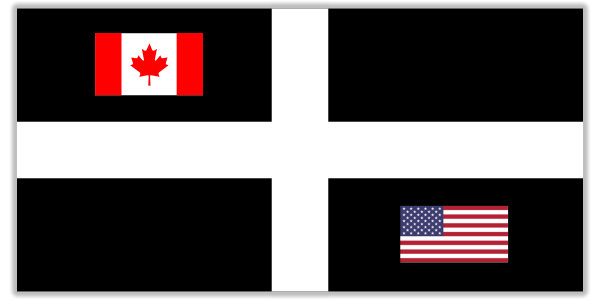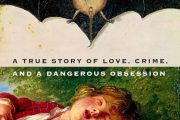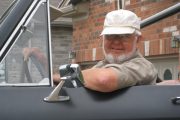I was never born in Canada, even though I have been called several derogatory Canadian names. But I have returned to Canada as an immigrant three times, with a different accent for each occasion.
I was six months old for my first arrival, at the port of Halifax in the winter of 1944. It was notable because the National Film Board captured the arrival in a grainy black-and-white newsreel as my mother disembarked her ship, the S.S. Ile de France. Even our crossing of the Atlantic had been dramatic: we had been shadowed by Nazi U-boats ever since our ship left the British port of Southampton and in our hold were several hundred German prisoners of war on their way to prison camps in Canada. The Ile de France had zig-zagged all the way across to shake the menace.
(After my birth in the south of England, we had been under attack at least twice – during an air raid as I emerged in the delivery room – and on the high street of Epsom, Surrey, as a Focke Wulf Fw 190 fighter strafed me in my pram. The pilot fired two cannon shells at me and missed.) Even then, I was a visible threat to the Third Reich.
The newsreel shows my mother, an English war bride, walking down a Halifax ramp, carrying me in her arms. In fact, all three times I returned as an immigrant to Canada, my mother was close by, even into my forties. When she died and went to our heavenly home, I was close by her.
I must have made an impression on my relatives, even at six months. Our train pulled in to the Toronto, Hamilton & Buffalo railway terminus at James and Murray Streets in Hamilton, Ontario, in early 1944 and my grandfather met the train. A no-nonsense railway man himself, he had no trouble in finding us. He simply got on to the train at one end and walked all the way to the other.
My Canadian relatives had come to meet Mom and me, bringing all kinds of food, for they had heard about the wartime privations of England. Imagine their shock when they found me, laughing gurgles in an English accent, jolly– and fat.
With that kick in the jodhpurs, I launched my childhood and my career. It included a return to England in the late 1940s and life in rural Cornwall where the inhabitants spoke fluent Cornish. That surprised my Canadian relatives again, when on returning to Canada, I greeted them in the only language I knew: Cornish. This time, at the same train station, I greeted a receiving line of cousins, who also had been born in the war years, but who were replying to me with expressions in shrugs. Life then was filled with cultural bonuses, because it was from them I learned the key Canadianisms gee whiz,“hot dogs and life in blue jeans.
Many years after that, in my 20s, I tried my hand as a registered alien in New York State, living in the cities of Buffalo and Rochester. It was a wonderful time, filled with cheap beer and steaks on the grill and it was nearly 20 years before I would return to Canada, again.
However, it was in these years that I learned that I spoke with a Canadian accent. Also, with the thousands of Mexican emigres entering Texas by swimming across the Rio Grande, being termed ‘wet backs’ I with my Canadian crossing became known as a ‘token snow back’.
In addition to gaining experience in some world-class working environments, with two children in tow, I also absorbed the local accents. Western New York originally had been settled by people from Silesia, in Germany, and these hardy souls bequeathed to all of us a pronunciation filled with flat vowels.
Returning to Canada a third time for me, we entered British Columbia in the Vancouver bus terminal, pretty much wearing our clothes on our backs. It was Mom who greeted me first.
So those days, instead of enunciating, "Hi, my name is John Hurst and I live on Foster Street and I have a problem"“, I blatted out, "Hi, my name is Jann Herst and I live on Faster Street and I have a prablem."
It took no time at all, maybe 10 years, for the three of us to lose our Americanisms.
And despite many years and separations, we only lost Mom once. As she lay dying in a coma in hospital, I was able to cradle her head briefly with my arm and talk to her. I asked her to take our Christian greetings with her to the family in heaven and expect us all to follow her one day.
I bet she did.





